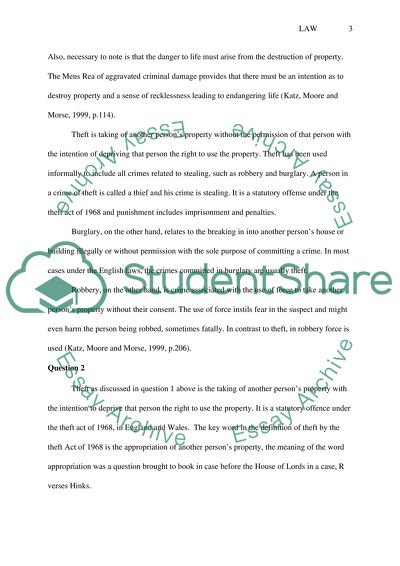Foundation of Criminal Law Essay Example | Topics and Well Written Essays - 750 words. Retrieved from https://studentshare.org/law/1450601-foundation-of-criminal-law
Foundation of Criminal Law Essay Example | Topics and Well Written Essays - 750 Words. https://studentshare.org/law/1450601-foundation-of-criminal-law.


